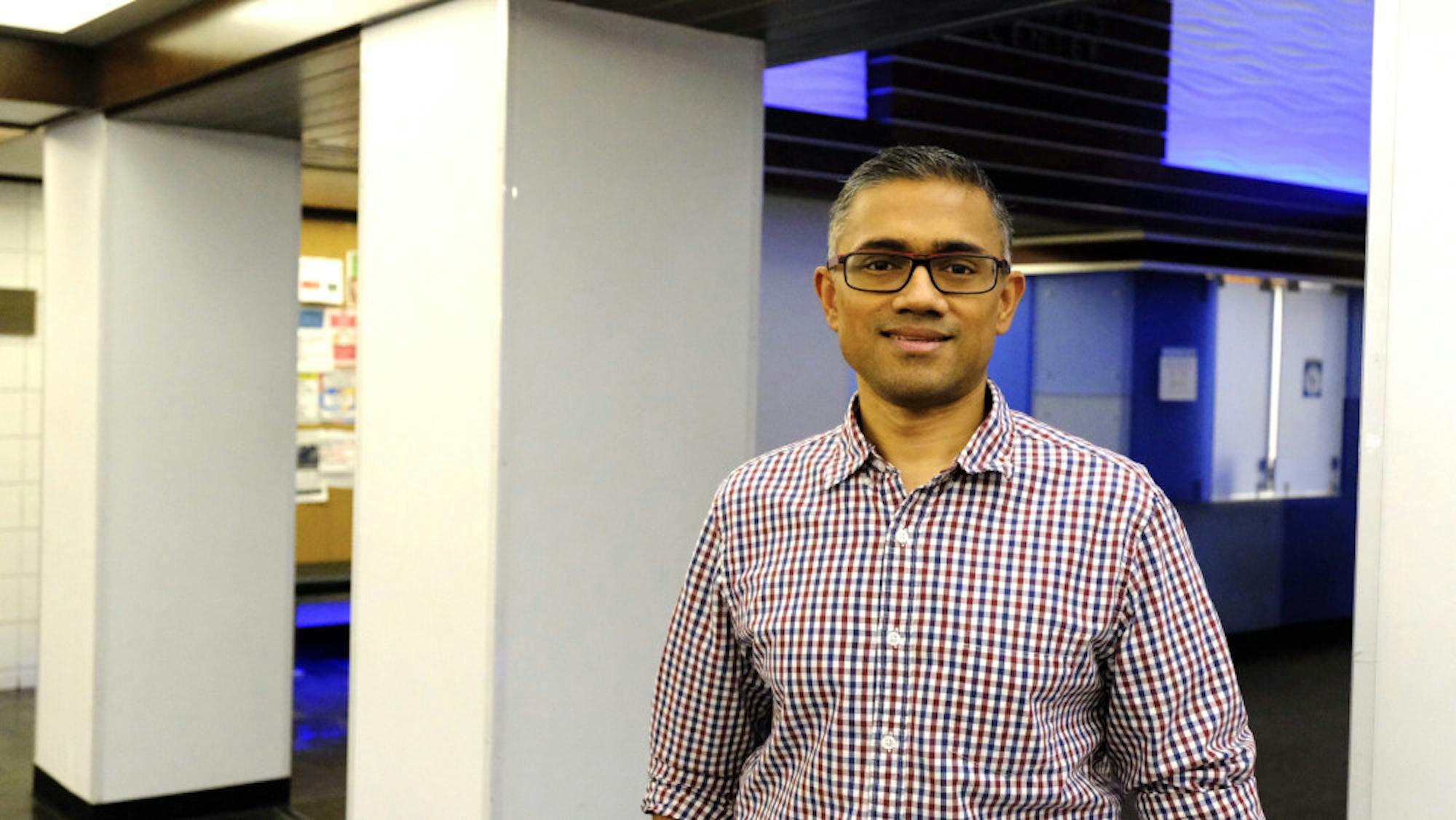Matthias Scheutz, a professor of computer science and director of the Human Robotic Interaction Lab, and Vasanth Sarathy, a Ph.D. candidate in computer science and cognitive science, became one of four grand prize winners this month in a highly selective National Science Foundation (NSF) competition.
The competition, called the "2026 Idea Machine Competition," was the first of its kind, providing an opportunity for the NSF to find potential areas for future research and advancement of science through input from the public.
As one of four entries from among about800 that advanced through five stages of competition, their proposal “From Thinking to Inventing” awarded Scheutz and Sarathy a $26,000 prize. The other entries receiving this award came from Harvard University, the University of North Carolina at Chapel Hill and the University of Chicago.
Scheutz and Sarathy proposed the idea to broaden the capabilities of machines and use creative problem-solving to address global issues, ranging from climate change to inequality.
“The grand challenges our society faces may be too large and too complex for us to solve in time," Scheutz and Sarathy said in the video pitch they submitted for the competition. "We may need to design and build machines to help us get there and get there faster."
To make this a possibility, Scheutz explained, there is still much to learn to bridge the gap between human brain functioning and machine processing.
“People are very good at problem-solving. People are very good at handling novel things, and we still don't understand that well enough. Because if we were to understand it well enough, we very likely would be able to replicate it on machines, and then not only replicate it but improve it,” Scheutz said in an interview with the Daily. “We might get superhuman performance, but across the board, not in a very narrow sliver of performance.”
The “sliver of performance” Scheutz mentioned refers to the narrow bounds within which artificial intelligence (AI) machines function, unlike the ways of human thinking.
“Even though they are called AI, there's nothing in there that's intelligent,” Scheutz said. “These are very, very customized, optimized programs and the way they do it is in a statistical data-driven fashion. But there's no insight. There's no reasoning, there's no cognition going on.”
To further demonstrate the current limitations of artificial intelligence machines, Scheutz and Sarathy gave the example of AlphaGo, the first AI computer program to defeat a professional human player in an ancient Chinese game called Go.
Despite the growth of AI with great pattern recognition abilities to perform tasks such as playing Go, these systems were relying on information given by humans and could only perform in limited situations. They were not able to operate with new data, such as a color change in the Go pieces or grid pattern changes from squares to triangles, Scheutz and Sarathy said.
Their goal is to create machines that they trust can adapt to their environment, improvise and make the right choices.
“You want machines out there that are resilient where they face situations where we hadn't planned for before, and they should be able to handle if things break, if they don't have the right set of parts to do something and if they don’t have sufficient capabilities to handle something,” Sarathy said.
To further develop these winning ideas, the NSF will welcome proposals for workshops and Early-concept Grants for Exploratory Research (EAGERs). Funding from EAGERs supports early research thatis “high risk-high payoff,” using new approaches or perspectives, according to the NSF.
Scheutz and Sarathy recognize that making their idea a possibility would require a collaborative, multidisciplinary effort from experts in artificial intelligence, robotics, psychology, cognitive science and other fields. It is this interdisciplinary aspect that Scheutz and Sarathy hope to expand through these proposed workshops stemming from their research theme.
“We need to bring people together who are experts in the field in different fields and set the stage for them to discuss important questions and figure out what the next steps are exactly,” Sarathy said.
Scheutz admitted that there are concerns for research which leads to more independent machines, but emphasized that there are ways to address them.
“These machines need to have from the beginning built-in ethical guidelines that will prevent exactly the idea that they, for example, set their own goals or set goals that are inconsistent with the goals you give them,” Scheutz said.
In the long term, Scheutz would like to see the proposal extend into a sustained investment by the NSF.
“The hope would be ... that the NSF, based on the outcome of a workshop like that ... would sponsor will develop a whole funding program on this. They’ve done this in the past based on the outcome of competitions of that sort,” Scheutz said.
Caroline Genco, Tufts' vice provost for research and Arthur E. Spiller M. D. professor of immunology at the Tufts University School of Medicine, believes that this project is an opportunity for collaboration across the different schools at Tufts University.
Genco said that she would like to build upon Tufts' AI research with a new AI institute. She believes that with the NSF's focus on Scheutz'sAI research, there will be potential for Tufts' schools to start collaborating on an AI institute.
"The proposed AI institute at Tufts is one such example of how ... I would like to expand the interdisciplinary nature of the Tufts research enterprise," Genco said. "Our unique schools collectively are poised to tackle … AI research and teaching opportunities from multiple perspectives..”
Genco plans to meet with Scheutz soon to plan how her office can help foster engagement in his research across Tufts’ schools.
Tufts professor, PhD student win idea competition, setting NSF research agenda

Vasanth Sarathy, a winner of the National Science Foundation 2026 Idea Machine Competition, poses for a portrait in the Mayer Campus Center on Feb. 13.





